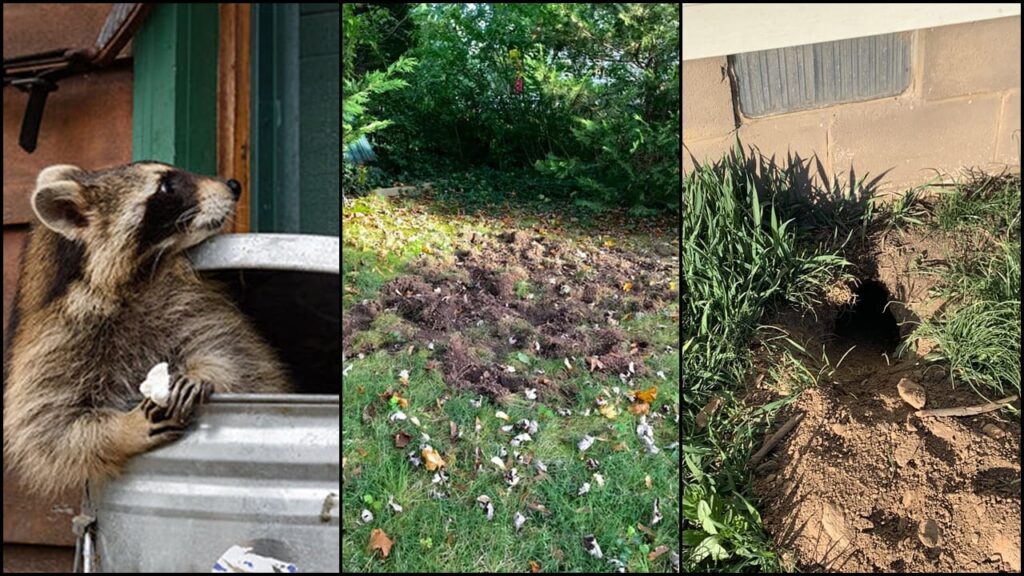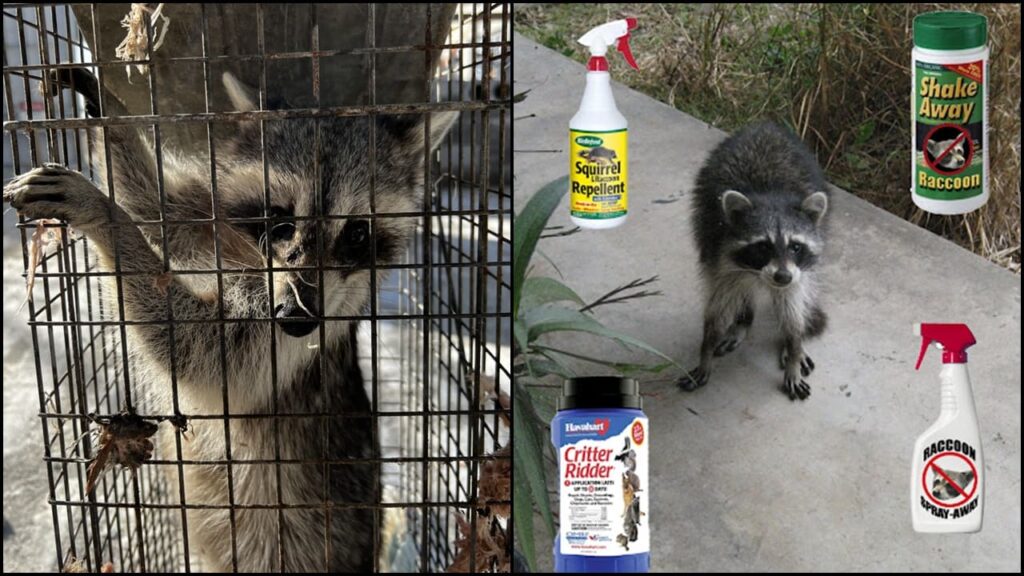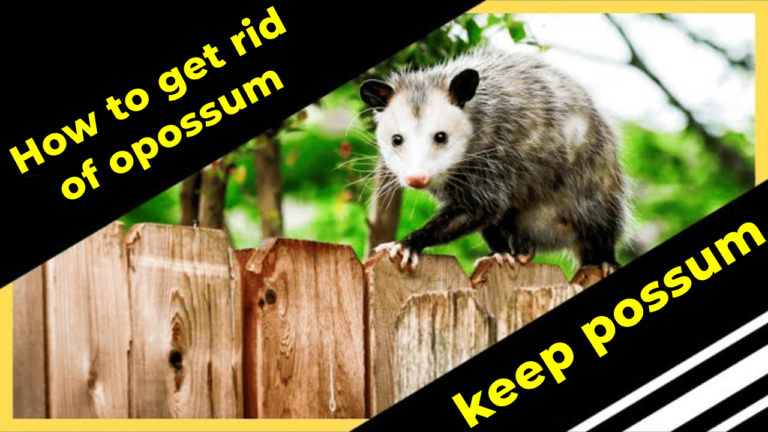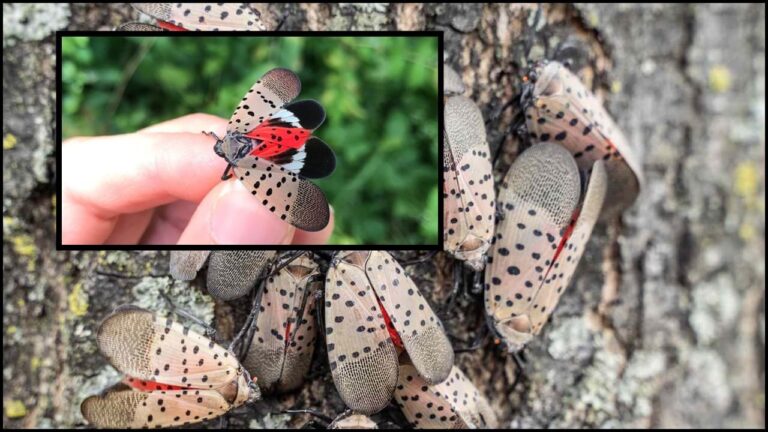How to Keep Raccoons Out of Your Garden: Easy Tips
Raccoons are nocturnal creatures known for their intelligence and dexterity, often causing trouble in home gardens by rummaging through trash, stealing food, and creating havoc in outdoor spaces. These pesky animals can be a real nuisance, especially when they start to damage plants or burrow under structures. In this article, we will explain effective methods to remove and get rid of raccoons from your home and garden, ensuring your outdoor space stays safe and secure.
How to Identify a Raccoon Problem in Your Garden

Before you can get rid of raccoons, it’s crucial to first identify the signs of an infestation. Raccoons are nocturnal animals, so you may not always see them during the day, but their presence can be detected in several ways.
Signs of Raccoon Infestation:
Tracks and Paw Prints: Look for small tracks or paw prints around your garden, particularly near trash cans, flower beds, or vegetable patches.
- Rummaged Trash: Raccoons are notorious for knocking over trash cans and rummaging through garbage. If you notice scattered waste or chewed-up bags, you likely have a raccoon problem.
- Disturbed Plants: Raccoons often dig up plants or uproot vegetables in search of food. You may find small holes or damaged plants.
- Burrows or Nesting Areas: Raccoons can create burrows under porches, sheds, or other structures. Check for disturbed soil or burrow entrances around your home.

Recognizing these signs early on can help prevent further damage and allow you to act quickly before the problem escalates.
Effective Ways to Get Rid of Raccoons Safely and Humanely
Once you’ve confirmed that raccoons are invading your garden, it’s time to take action. Fortunately, there are several humane and effective methods for removing these animals without causing harm.

Humane Traps and Relocation
Using live traps is one of the most common ways to remove raccoons. These traps are designed to capture the animal without causing injury. Once trapped, the raccoon can be relocated to a more suitable area away from your home. Make sure to check local laws and regulations regarding raccoon relocation, as some areas have restrictions on where animals can be released.
Natural Repellents
Raccoons have a strong sense of smell and are deterred by certain scents. Using natural repellents is a safe and eco-friendly way to keep raccoons at bay. Some effective natural repellents include:
- Peppermint Oil: Raccoons dislike the strong scent of peppermint. Mix a few drops of peppermint oil with water and spray it around your garden.
- Garlic and Hot Pepper: Create a spray using garlic and hot pepper to create an unpleasant environment for raccoons.
- Ammonia: The strong smell of ammonia is a natural deterrent for raccoons. Soak rags in ammonia and place them in areas where raccoons are likely to visit.
Professional Wildlife Control
If DIY methods are not working, or if the infestation is severe, it may be time to call in a professional wildlife control service. Experts can safely remove the raccoons and offer advice on long-term prevention. Professional services are particularly useful if raccoons have made their way into attics or other hard-to-reach places.
How to Raccoon-Proof Your Garden
Once you’ve removed the raccoons, it’s essential to take steps to prevent future invasions. Here’s how you can raccoon-proof your garden and keep these pesky creatures out for good.
Secure Garbage and Food Sources
Raccoons are opportunistic feeders, so making food sources inaccessible is key to preventing them from returning.
Secure Trash Cans: Use trash cans with tight-fitting lids or invest in raccoon-proof bins. Consider adding a lock or bungee cord to make it harder for raccoons to access the trash.
Remove Pet Food: If you leave food out for pets, make sure it’s brought inside at night. Raccoons will be attracted to any available food.
Install Barriers and Fencing
Raccoons are excellent climbers and can easily jump over low fences, but there are ways to make your garden less accessible:
- Tall Fencing: A fence that is at least 4 feet high can help keep raccoons out. However, raccoons may try to climb over, so consider adding an angled top to prevent them from scaling the fence.
- Electric Fencing: In severe cases, installing a low-voltage electric fence can be an effective way to deter raccoons from entering your garden.
Eliminate Shelter Options
Raccoons often seek shelter in attics, sheds, and under decks. To prevent raccoons from nesting near your garden:
- Seal Entry Points: Check your home for holes, gaps, or vents that raccoons could use to enter. Seal these entry points with hardware cloth or metal flashing.
- Trim Trees: Raccoons can easily climb trees to access roofs or upper levels. Trim back tree branches that are close to your home or garden.
How to Fix Raccoon Damage in Your Garden
If raccoons have already caused damage to your garden, it’s important to repair it promptly to restore your outdoor space.
- Replanting and Soil Repair
If your plants have been uprooted or damaged, replanting them is the first step. Add fresh soil or compost to repair any disturbed garden beds. You may also want to consider installing mulch or ground cover to prevent raccoons from digging in the future. - Repairing Structural Damage
Raccoons can cause damage to fences, roofs, or other structures. Inspect your garden and home for signs of damage. Patch up holes or cracks with sturdy materials such as wood or metal to prevent further access.
Conclusion: Keep Your Garden Safe from Raccoons
Raccoons can be a frustrating challenge, but with the right strategies, you can remove them from your garden and prevent future visits. Whether you’re using humane traps, natural repellents, or professional services, it’s essential to take action quickly to minimize damage and protect your outdoor space. By following these tips, you can create a raccoon-free environment that allows you to enjoy your garden without worry.







